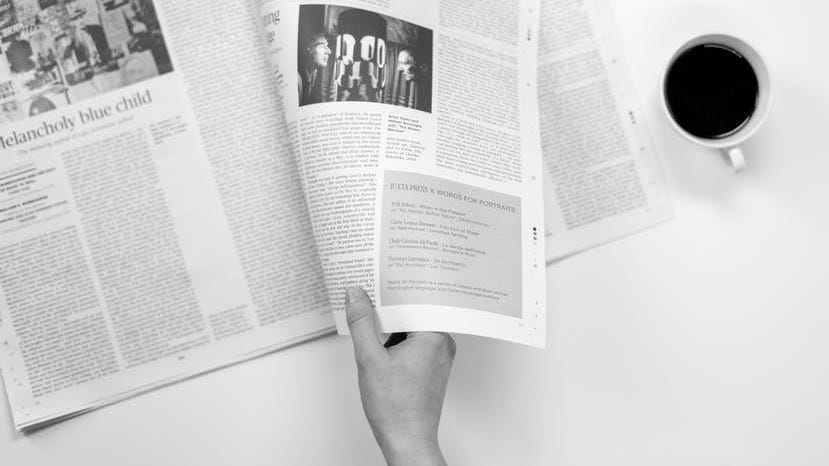Coffee News Roundup: Week Ending December 3rd
Brazil's largest co-op cuts its export forecast, Ritual Coffee says it will move to employee ownership, the Starbucks unionization drive expands again, & Keurig settles a K-Cup recyclability lawsuit.
Another week, another Coffee News Roundup. Let’s see what’s been going on.
Brazil's Coffee Co-Op Cuts Exports View; To Use 'Big Bags' In Shipments - Via Reuters
The world’s largest coffee co-op, Brazil’s Cooxupé, cut its 2021 export forecast this week, citing a smaller crop and supply chain bottlenecks, specifically when it comes to shipping.
The co-op, which is also Brazil’s largest coffee exporter, said it was receiving 2 million fewer bags from its members, due to the smaller crop. This is alongside issues with the availability of containers, leading Cooxupé to explore the elegantly-named “big bags”—what Reuters calls ”an alternative to containerized shipping, using 1,000 kg bags to put the coffee in dry bulk vessels.”
I would really like to see photos of the big bags.
Brazil’s woes—which could hit the 2022 coffee crop after the recent drought and frost double whammy, with the Cooxupé president saying “the flowering and the conversion to fruit was not ideal”—have pushed the C price ever higher.
CNBC, in an article titled Coffee Prices Are At 10-year Highs, And Analysts Say They Have Much Further To Go, quotes analysts as predicting several years of what they call “tightness” in the market.
“The question for future price action is how much of these developments are potentially longer-lasting,” one analyst said. The combination of drought, frost, and supply chain issues in Brazil has “left the 2022 crop in a bit of a precarious state.”
Issues in other producing countries—COVID-19 lockdowns in Vietnam, bad weather and supply chain issues in Colombia, potential civil war in Ethiopia—have also helped keep coffee’s commodity price high. Another analyst told CNBC that he expects prices to remain volatile for the foreseeable future: “I don’t think we’re by any means out of the woods yet.”
Founder Of Ritual Coffee Plans To Offer Shares To Employees - Via Mission Local
The owner of San Francisco’s Ritual Coffee Roasters, Eileen Rinaldi, has announced that she intends to offer shares in the company to her employees, and eventually transition to a fully employee-owned model.
Founded in 2005, Ritual now has five locations in San Francisco and Napa and has dealt with a number of scandals involving race and culture in recent years. Whether the promise to give ownership to its workers ever comes to fruition is another issue—a similar announcement was made and not followed through on by the owners of Four Barrel after a lawsuit alleging sexual assault was filed against one of its co-founders (and, coincidentally, co-founder of Ritual) Jeremy Tooker.
Rinaldi, however, says she has been planning this transition for a number of years, especially after seeing contemporaries like Blue Bottle sell out to major investors (in that case, Nestlé). Staff, meanwhile, seem broadly positive about the announcement: “It’s so the opposite of everything we’re taught as American kids in terms of capitalism and a corporate structure,” one said. “This is showing a redistribution of ownership and wealth, and moving into group-decision making.”
More Headlines
New Lockdowns Due To Omicron Would Threaten Coffee Industry -Colombia Coffee Chief
Nigeria Joins The International Coffee Organization
Coffee, Tea Or Vaccine? Smart Mug Maker Ember Plots Shift To Pharma Cold-chain Tech
The Week In Coffee Unionizing
This section should probably be renamed What The Heck is Starbucks Up To This Week.
The Starbucks union drive is spreading, both nationally (all the way to Arizona) and also locally, as this week workers from three more Buffalo-area stores appeared before the National Labor Relations Board to seek approval for holding a union vote.
Starbucks’ lawyers once again asked for the vote to be held just once at all 20 Buffalo stores—a move they say is fairer as employees can work at multiple locations, but which union organizers allege is an attempt to water down the vote and, thus, favour the company.
Pending a decision by the NLRB whether to expand the vote to multiple stores, votes from the three stores currently holding elections will be counted December 9—it’s not clear when a vote would take place at the three new locations.
The Week In Corporate Coffeewashing
Ah coffee pods. Are they recyclable? Sustainable? A mess of materials that make them incredibly annoying and tricky to deal with? Who knows!
On a related note, Keurig this week tentatively agreed to settle a class-action lawsuit that alleged its pod recyclability claims were misleading.
The suit alleges that, because of their small size, plastic K-Cups fall through the screens at sorting facilities and are disposed of, or else they contaminate other recyclables. This is contrary, the suit claims, to Keurig’s advertising that, once the foil lid is removed and the grounds disposed of, the remaining plastic cup and filter can be recycled.
Keurig, in a motion to have the suit thrown out, claimed (among other things) that its advertising was compliant with the law because it instructed consumers to “check locally” whether their K-Cups could be recycled.
Ah yes, putting the onus on the consumer. That old lark. I don’t know about you, but I’m constantly looking up how to recycle various items/materials, and it’s always a nightmare to figure out. Does my local facility accept polystyrene? No? Does anyone? What about plastic wrap? Coffee bags that say “recycle me!” on them? No wonder people just throw things out. It’s such a faff.
Is Coffee Good For You?
This week, in a shocking turn of events, coffee negatively impacts your sleep but also makes you more energetic. Or “less sleep, more steps” as Daily Coffee News put it.
The research looked at caffeine’s impact on the heart, and found that coffee drinkers had a 54% increase in premature ventricular contractions, a common type of abnormal heartbeat, and slept an average of 36 minutes fewer per night. On the plus side, they logged an average of 1,000 extra steps per day, and coffee consumption was also associated with fewer episodes of supraventricular tachycardia, a quickened heartbeat that occurs in the heart’s upper chambers.
Meanwhile, in a separate study caffeine was shown to increase alertness and detection accuracy for moving targets. The study, which looked at caffeine's effects on dynamic visual skills, found ”that caffeine consumption can actually be helpful for a person's visual function by enhancing alertness and feelings of wakefulness," according to the lead researcher. "This is especially true for those critical, everyday tasks, like driving, riding a bike or playing sports, that require us to attend to detailed information in moving objects when making decisions."
What To Read
How Coffee Helped Win The Civil War by Maria Scinto
DCN’s Ultimate Step-By-Step Holiday Coffee Buying Guide by Nick Brown
Until next week, drink good coffee.






